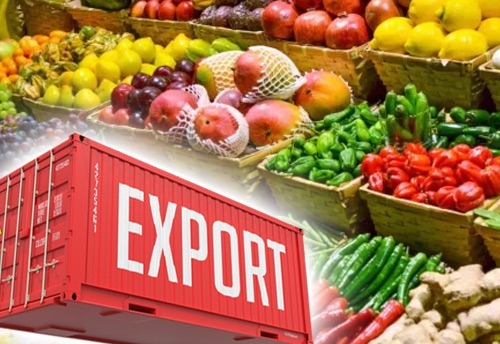Oil Dependency: Can Nigeria Move Forward?
For over six decades, Nigeria’s economy has relied heavily on oil. Since its discovery in 1956, oil has contributed more than 90 per cent of the country’s export income, making it the lifeblood of the nation’s finances. However, economic dynamics are changing, and the question remains: can Nigeria move beyond oil dependency?
“We are at a pivotal moment,” said Bola Ahmed, an economic analyst based in Lagos. “The recent rise in non-oil exports shows that Nigeria is on the right path, but the challenges ahead cannot be ignored.”
Join our WhatsApp ChannelThis sentiment echoes across the country as many wonder whether the non-oil sectors can provide a sustainable future. Agriculture, solid minerals, and manufacturing are all showing promising growth, but deeper challenges threaten their long-term success.
Agriculture: Nigeria’s Hidden Strength
At the forefront of Nigeria’s effort to move away from oil dependency is its agricultural sector. In the first quarter of 2024, agriculture exports surged by 123 per cent, generating ₦1.04 trillion. Key products like sesame seeds and cocoa beans are leading the charge, helping Nigeria reclaim its place as a significant player in global agricultural markets.
“Agriculture has always been a strength for Nigeria,” said Aisha Bello, an agricultural economist. “But the lack of infrastructure and investment has kept us from realizing its full potential.”
Despite the impressive gains, there are major hurdles to overcome. Nigeria loses ₦3.5 trillion annually due to post-harvest losses, driven by poor storage facilities and inadequate road networks. These losses surpass the government’s agricultural budget over the past five years, showing just how critical infrastructure investments are.
“We need to address these losses urgently,” Bello added. “If we can improve storage and transportation, the agricultural sector could truly take off and reduce our oil dependency.”
Solid Minerals: The Untapped Treasure
Another promising sector for Nigeria’s economic transformation is solid minerals. In Q1 2024, exports from this sector increased by 76.77 percent. Nigeria boasts rich deposits of limestone, tin, and gold, but the industry remains underdeveloped due to regulatory inefficiencies and years of neglect.
READ ALSO: OPL 245, Tinubu/Oando, Eni(Agip) Oil Deals: What Nigerians Don’t Know
“Solid minerals have the potential to reshape our economy,” said Michael Onu, a mining consultant. “But we need better regulations and more investments to make it happen.”
Onu pointed to Chile as an example of a country that has successfully diversified its economy through mining. “Nigeria can learn from Chile’s mining reforms,” he suggested. “If we can simplify regulations, attract private investment, and crack down on illegal mining, this sector could play a major role in reducing oil dependency.”
However, without targeted reforms, the risks of stagnation loom large. The sector’s growth must be met with regulatory changes and increased government focus.
Manufacturing: A Growing Force
The manufacturing sector is another area that is showing potential. In Q1 2024, Nigeria’s manufacturing trade reached ₦6 trillion, driven by exports of aluminum alloys and refined lead. With the African Continental Free Trade Agreement (AfCFTA) in place, Nigerian manufacturers have access to larger regional markets.
“Manufacturing can be a game-changer for Nigeria,” said industrial expert Chinedu Udeh. “But we are facing significant challenges, particularly with electricity and high production costs.”
The government has introduced Special Economic Zones (SEZs) and the Nigerian Industrial Revolution Plan (NIRP) to encourage growth in this sector, but unreliable power supply and cheap imports still threaten competitiveness.
“If we can fix the energy issues, the manufacturing sector could thrive,” Udeh noted. “But without that, progress will be slow.”
The Road to a Diversified Economy
Nigeria’s journey to reduce its oil dependency is far from over. While non-oil exports grew by 6.26 percent in the first half of 2024, generating $2.7 billion in revenue, much more needs to be done to sustain this progress. The infrastructure gaps, security concerns, and regulatory barriers could slow down the momentum gained.
“The growth we’re seeing in non-oil sectors is encouraging,” said Ahmed. “But we need a comprehensive strategy to address these roadblocks. Infrastructure must be prioritised, and the regulatory environment needs to be streamlined.”
Other countries offer valuable lessons. Chile’s success with mining and Indonesia’s strategic pivot toward non-oil exports demonstrates the importance of targeted reforms, investment in infrastructure, and simplifying regulations. Nigeria must take these lessons to heart if it hopes to reduce its reliance on oil.
A New Chapter for Nigeria’s Economy?
Nigeria stands at a crucial point in its economic history. For decades, oil dependency has defined the nation, but now, there is a real opportunity to diversify. Agriculture, solid minerals, and manufacturing all present potential growth areas.
However, these sectors must overcome significant challenges before they can truly replace oil as the backbone of Nigeria’s economy.
“It’s time to act,” said Ahmed. “The government needs to focus on long-term investments and create an environment that allows non-oil sectors to flourish. Only then can we break free from oil dependency.”
With the right reforms, Nigeria could open a new chapter in its economic development—one where oil is no longer the sole driver of growth. The stakes are high, but the rewards could reshape the nation for generations to come.
Emmanuel Ochayi is a journalist. He is a graduate of the University of Lagos, School of first choice and the nations pride. Emmanuel is keen on exploring writing angles in different areas, including Business, climate change, politics, Education, and others.
- Emmanuel Ochayihttps://www.primebusiness.africa/author/ochayi/
- Emmanuel Ochayihttps://www.primebusiness.africa/author/ochayi/
- Emmanuel Ochayihttps://www.primebusiness.africa/author/ochayi/
- Emmanuel Ochayihttps://www.primebusiness.africa/author/ochayi/


















Follow Us